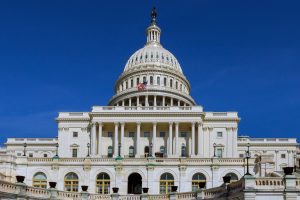The House Energy and Commerce Committee has unanimously approved two bipartisan bills aimed at enhancing the National Telecommunications and Information Administration (NTIA) ‘s cybersecurity responsibilities. This legislative action comes in response to escalating cyber threats targeting U.S. telecommunications infrastructure, notably from state-sponsored groups like China’s Salt Typhoon.
Establishment of the Office of Policy Development and Cybersecurity
What is the Office of Policy Development and Cybersecurity’s primary function concerning cybersecurity and national security? Is the Office primarily focused on policy, or is it involved with research and development? Who is in charge of this office? What is the scope of the Office’s work? How does the office engage with various federal agencies? What partnerships does the office hold in multiple industries?
Representative Obernolte emphasized the bill’s significance: “This bill addresses a critical gap by formalizing the National Telecommunications and Information Administration’s role in cybersecurity policy to safeguard our communication networks better.”
Assessment of Mobile Network Cybersecurity
The second bill, the Understanding Cybersecurity of Mobile Networks Act (H.R. 1709), is sponsored by Representatives Kat Cammack (R-Fla.) and Greg Landsman (D-Ohio). The bill directs the National Telecommunications and Information Administration (NTIA) to comprehensively evaluate the cybersecurity vulnerabilities inherent in mobile service networks and devices. The NTIA is an agency within the U.S. Department of Commerce. It focuses on developing and applying standards and practices for information technology, broadband, and radio frequency spectrum.
Representative Cammack underscored the urgency of this initiative, remarking, “Understanding the risks to our mobile infrastructure will allow us to stay ahead of emerging threats, protect American consumers, and safeguard critical national security interests.”
These legislative efforts emerge against increasing cyberattacks on U.S. telecommunications networks. Notably, the Chinese state-sponsored threat group Salt Typhoon has been implicated in a series of sophisticated intrusions targeting these critical infrastructures. The group’s activities have heightened concerns about the security and resilience of the nation’s communication channels, prompting lawmakers to seek robust measures to counter such threats.
During the committee’s markup session, both bills received unanimous support, reflecting a bipartisan consensus on the necessity of strengthening the NTIA’s cybersecurity mandate. The committee advanced ten bills, with a significant focus on enhancing the United States’ security and technological leadership in the telecommunications sector.
Following the committee’s approval, these bills will proceed to the full House of Representatives for consideration. If passed, they will move to the Senate and require the President’s signature to be enacted into law. The swift and unanimous committee approval suggests a strong legislative will to address the cybersecurity challenges facing the nation’s telecommunications infrastructure.
Implications for the Telecommunications Industry
The enactment of these bills would signify a pivotal enhancement of the NTIA’s role in cybersecurity policy development and coordination. This could translate into more stringent cybersecurity standards and increased collaboration with federal agencies to identify and mitigate vulnerabilities in the telecommunications industry. As mandated by the Understanding Cybersecurity of Mobile Networks Act, the proactive assessment of mobile network security is anticipated to lead to more resilient mobile communication infrastructures, thereby safeguarding consumer data and national security interests.
The bipartisan advancement of these bills underscores a unified legislative commitment to fortify the cybersecurity posture of the United States’ telecommunications infrastructure. By empowering the NTIA with dedicated cybersecurity responsibilities and mandating thorough assessments of mobile network vulnerabilities, Congress aims to proactively address and mitigate the evolving cyber threats that imperil critical communication networks.



